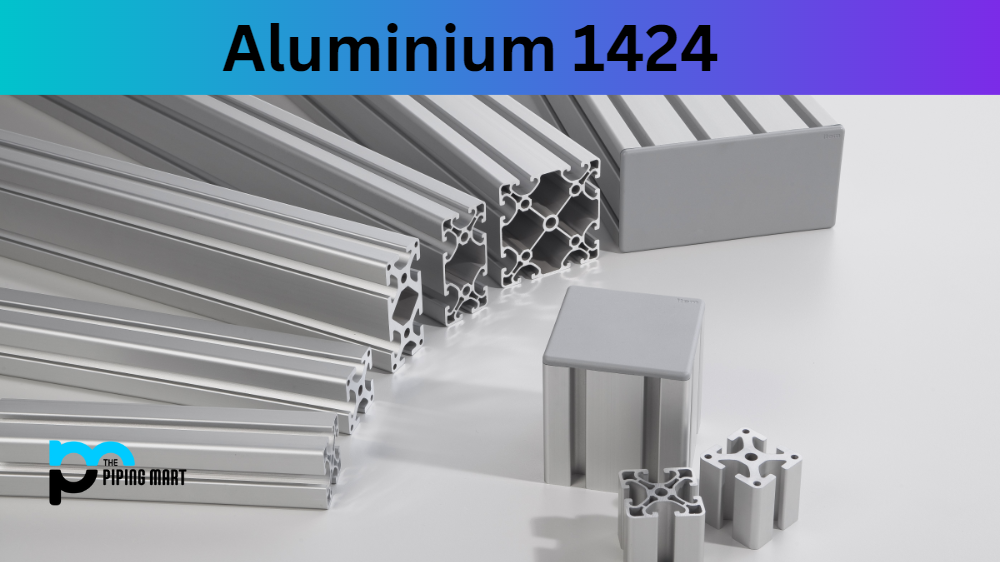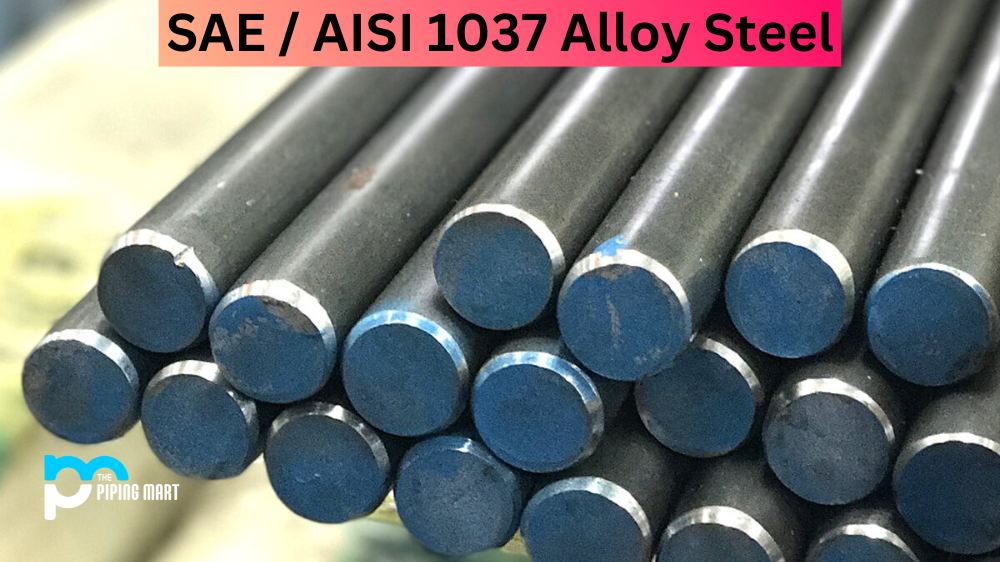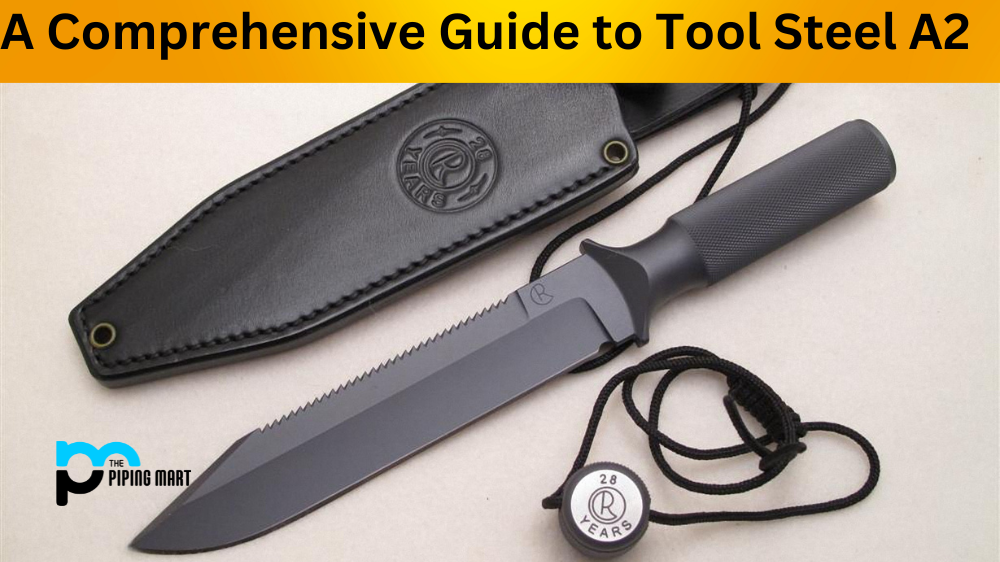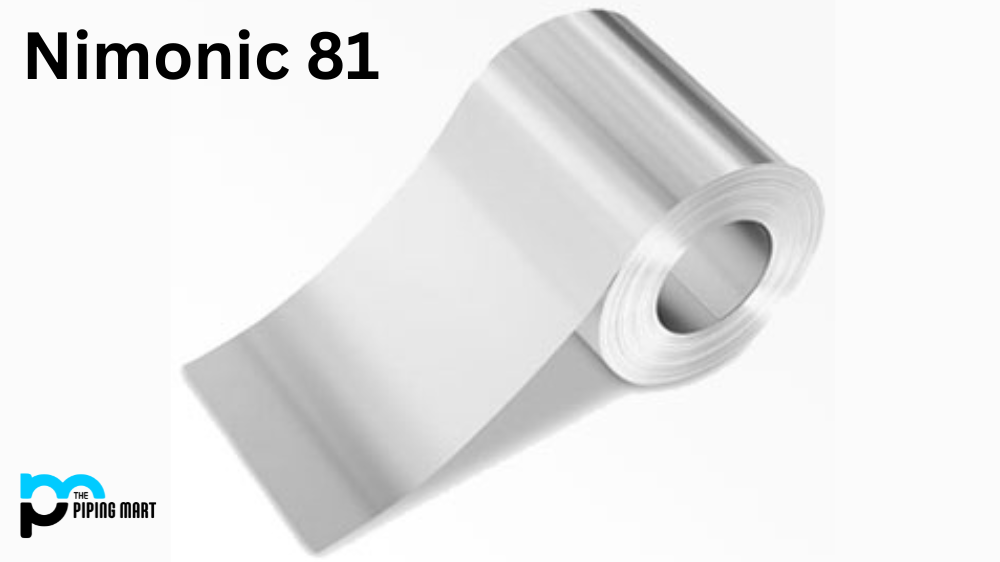Aluminium 1424 is a medium-strength alloy that combines excellent machinability, good formability, and high corrosion resistance. It’s often used for parts that require extensive machining or welding and components that must have a superior surface finish. In this blog post, we’ll take a look at the composition and properties of aluminum 1424, as well as its uses, corrosion resistance, heat resistance, and heat treatment processes.
1424 Aluminium Composition
Al 1424 is an aluminum-silicon alloy containing 3.5-4.5% silicon by weight. The addition of silicon increases the strength of the alloy while reducing its ductility and machinability compared to pure aluminium alloys. Aluminium 1424 has an ultimate tensile strength of 150 MPa (megapascals) with an elongation of 4%. It also has a Brinell hardness of 65 HB (hardness points).
1424 Aluminium Chemical Properties
Alloy 1424 is an alloy with unique chemical properties, making it an ideal choice for a wide range of applications. One of the most important is its strong corrosion resistance, allowing it to be used in corrosive environments where other metals would not survive. This alloy also provides good electrical conductivity and thermal conductivity, making it popular for electrical equipment and components. Its low melting point makes Aluminium 1424 an ideal option for castings or die-castings, and it can also be forged or cold-worked into intricate shapes. At the same time, this metal is lightweight yet strong, which is well suited to automotive parts and aerospace design. All these factors combined make Aluminium 1424 a versatile choice with many practical uses.
1424 Aluminium Mechanical Properties
Grade 1424 is an aluminum alloy known for its remarkable mechanical properties. It exhibits excellent corrosion resistance, particularly when factoring in its low density and machinability. It’s also solid — boasting tensile and yield strengths that are 50% higher than pure aluminum. Its thermal conductivity is superior to other alloys in the same range, and it can be used in a wide variety of applications, including automobile manufacturing and industrial machinery production. Aluminium 1424’s unique and impressive combination of flexibility, resilience, strength, lightweight, low cost, and availability makes it one of the preferred materials for product designers worldwide.
1424 Aluminium Physical Properties
Aluminium 1424 is a medium-strength industrial alloy with impressive physical properties. It has excellent weldability, machining and formability characteristics at temperatures as high as 3020°F. This alloy also shows good corrosion and oxidation resistance qualities compared to other aluminium alloys. It boasts a tensile strength between 50-65 ksi and an elongation of 10-15%, so it’s perfect for high-stress applications. Furthermore, Aluminium 1424 works well with various surface treatments such as painting and powder coating, adding even more options when selecting this alloy for use in industrial projects.
1424 Aluminium Uses
Due to its excellent machinability, Aluminium 1424 is commonly used in applications such as automotive components, gearboxes, power tools, medical devices, aircraft parts, pumps and valves. It’s also used for parts that require a superior surface finish and are exposed to corrosive environments or extreme temperatures. Additionally, Aluminium 1424 is often chosen for parts that need to be welded or machined extensively due to its low cost compared to other alloys.
Corrosion Resistance
Thanks to its high content of silicon oxide on the surface layer when exposed to air or water, Aluminium 1424 has excellent corrosion resistance even in harsh environments. This makes it ideal for applications where the part must remain free from rust or corrosion over time without any additional protective coatings being applied.
Heat Resistance
Aluminium 1424 has a melting point of approximately 940°C (1720°F), making it suitable for use at higher temperatures than other aluminium alloys, such as 1000 series alloys which have lower melting points of around 600°C (1112°F). This makes it suitable for applications subjected to extreme temperature changes, such as in engines or exhaust systems.
Heat Treatment
Heat treatment processes can be used on Aluminium1424 in order to improve its properties further after fabrication or welding, such as increasing its strength or improving formability by increasing ductility. Common heat treatments include ageing treatments like solution heat treatment followed by artificial ageing, which increases strength; quenching followed by tempering, which increases elasticity; precipitation hardening, which increases both strength and hardness; and stress relief treatments which reduce internal stresses caused by welding or forming operations.
Machining
Aluminium 1424 machining is a precise process that requires cutting, drilling and milling metals with high accuracy. Traditionally it was done by hand using saws, chisels and hammers, but the cost of these techniques made them too expensive for commercial use. Modern CNC machines are available to carry out aluminium 1424 machining faster and more economically. Thanks to the advanced programming capabilities of these machines, as well as the quality control measures put into place, aluminium 1424 machining can now be done with fantastic precision and results. Plus, project timeframes have significantly decreased due to increased speed – making this a great production method for businesses.
Welding
Aluminium 1424 welding is an invaluable process for the fabrication of aluminium products. It allows welders to join two pieces of steel together efficiently and effectively, creating a strong and durable joint. The aluminium 1424 welding process requires specialized equipment and expertise, making it an important skill for any serious metalworker to possess. Once mastered, aluminium 1424 welders can create a variety of design possibilities with confidence and precision, from fences and buildings to machinery parts. It is a great way to unleash creativity in metalwork projects while ensuring the final product’s quality and durability.
Conclusion
In conclusion, Aluminium1424 is an economical choice for applications requiring extensive machining or welding due to its good formability combined with high corrosion resistance and moderate heat resistance up to 940°C (1720°F). Its composition allows it to be treated with different heat treatment processes depending on what type of property enhancement is desired so that it can meet various application requirements ranging from automotive components to medical devices. With this knowledge, you should now feel comfortable specifying aluminum1424 details for your next project!

Abhishek is a seasoned blogger and industry expert, sharing his insights and knowledge on various topics. With his research, Abhishek offers valuable insights and tips for professionals and enthusiasts. Follow him for expert advice on the latest trends and developments in the metal industry.




